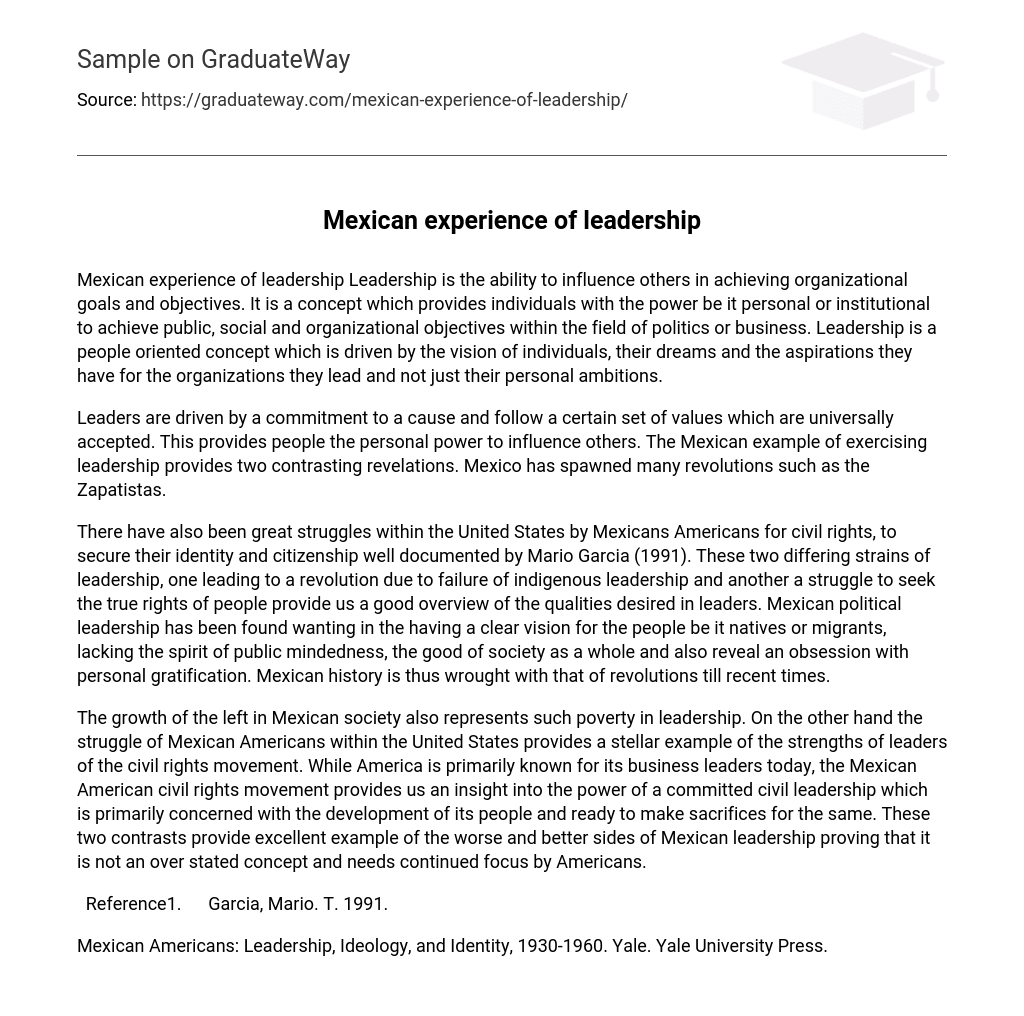Leadership is the ability to influence others in achieving organizational goals and objectives. It is a concept which provides individuals with the power be it personal or institutional to achieve public, social and organizational objectives within the field of politics or business. Leadership is a people oriented concept which is driven by the vision of individuals, their dreams and the aspirations they have for the organizations they lead and not just their personal ambitions.
Leaders are driven by a commitment to a cause and follow a certain set of values which are universally accepted. This provides people the personal power to influence others. The Mexican example of exercising leadership provides two contrasting revelations. Mexico has spawned many revolutions such as the Zapatistas. There have also been great struggles within the United States by Mexicans Americans for civil rights, to secure their identity and citizenship well documented by Mario Garcia (1991).
These two differing strains of leadership, one leading to a revolution due to failure of indigenous leadership and another a struggle to seek the true rights of people provide us a good overview of the qualities desired in leaders. Mexican political leadership has been found wanting in the having a clear vision for the people be it natives or migrants, lacking the spirit of public mindedness, the good of society as a whole and also reveal an obsession with personal gratification.
Mexican history is thus wrought with that of revolutions till recent times. The growth of the left in Mexican society also represents such poverty in leadership. On the other hand the struggle of Mexican Americans within the United States provides a stellar example of the strengths of leaders of the civil rights movement. While America is primarily known for its business leaders today, the Mexican American civil rights movement provides us an insight into the power of a committed civil leadership which is primarily concerned with the development of its people and ready to make sacrifices for the same.
These two contrasts provide excellent example of the worse and better sides of Mexican leadership proving that it is not an over stated concept and needs continued focus by Americans.
Reference
- Garcia, Mario. T. 1991. Mexican Americans: Leadership, Ideology, and Identity, 1930-1960. Yale. Yale University Press.





